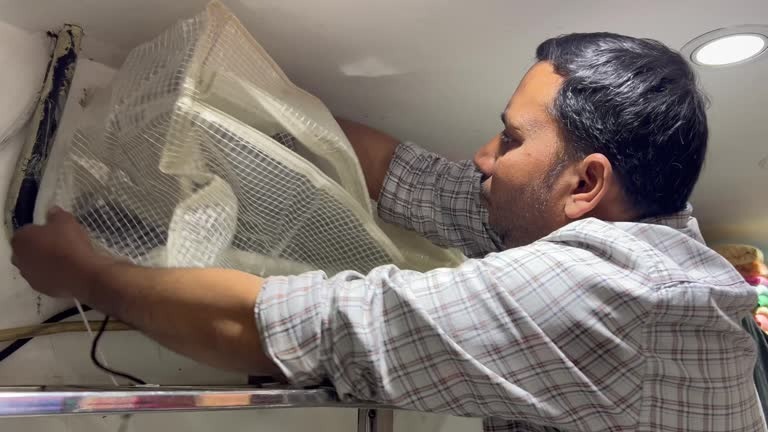The quality of indoor air is a significant concern for many homeowners. Poor indoor air quality can lead to various health issues, including allergies, asthma, and other respiratory conditions. Fortunately, with the right HVAC (Heating, Ventilation, and Air Conditioning) solutions in place, you can significantly improve your home’s air quality.
HVAC systems play an integral role in maintaining good indoor air quality by regulating temperature and humidity levels as well as filtering out pollutants from the outdoor environment. However, not all HVAC systems are created equal when it comes to improving indoor air quality. Therefore, it’s essential to choose a system specifically designed with features that enhance this aspect.
One effective solution is installing an HVAC system equipped with high-quality filters that can trap small particles such as dust mites, pet dander heating and cooling service provider pollen which are common allergens found in homes. These filters should be replaced regularly according to the manufacturer’s guidelines to maintain their efficiency.
Another important feature to consider is the ventilation component of your HVAC system. Proper ventilation ensures there is enough fresh outdoor air circulating inside your home while simultaneously expelling stale indoor air laden with pollutants outside. This process helps dilute concentrations of contaminants inside your house thereby reducing exposure risks.
Incorporating ultraviolet (UV) lights into your HVAC system can also contribute significantly towards bettering indoor air quality. UV lights have been proven effective at neutralizing airborne bacteria and viruses thus preventing their circulation within homes.
Moreover, dehumidification capabilities within an HVAC unit cannot be overlooked especially in areas prone to high humidity levels which encourage mold growth – another common household pollutant detrimental to health. By keeping humidity levels below 50%, these units help deter mold proliferation hence contributing towards cleaner breathing spaces.
Apart from investing in advanced technologies for improved filtration or purification processes like UV or HEPA (High-Efficiency Particulate Air), regular maintenance of these systems plays a crucial role too. Regular inspections ensure all components are functioning optimally and potential issues are detected early before escalating into major problems that could compromise air quality.
To sum up, achieving better air quality in your home is possible with the right HVAC solutions. Whether it’s through enhanced filtration systems, improved ventilation, incorporation of UV lights or maintaining optimal humidity levels, these strategies can significantly reduce pollutants within your indoor environment. Remember to also schedule regular maintenance for your HVAC system to ensure its efficiency and longevity. By doing so, you’ll not only create a healthier living space but also enjoy the added benefits of energy savings and increased comfort.










